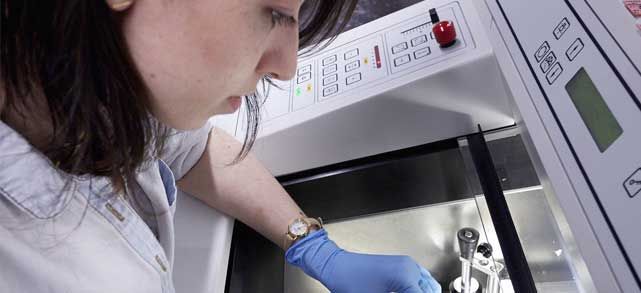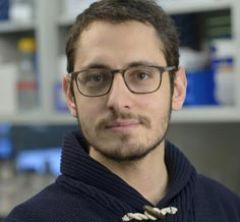
Overview
Common themes in the graduate programs at WCGS in Cell Biology and Developmental Biology include genetics, gene expression, cell growth and stem cell biology.
The CDB program of study offers opportunities to develop research training in cell biology, developmental biology, genetics and molecular biology. Members of our world-renowned faculty are engaged in cutting-edge research across a broad spectrum of interest areas and technologies.
The CDB program comprises over 50 faculty members whose research focuses on a wide range of topics related to the control of normal and malignant cell growth, differentiation, tissue development and stem cell biology. Purified proteins, isolated cells and tissues, and whole organisms are all being exploited as model systems, assisted by computational methods, genomics and RNA profiling.
Common themes throughout many of the research activities include the control of gene expression, signal transduction, cell growth and apoptosis, cell polarity and migration, stem cell biology and cell-cell interactions.
Cell biologists in the program study the dynamic regulation of intracellular trafficking, protein secretion, cell polarity, cell shape, oncogene function and cell-matrix interactions.
Developmental biologists investigate germ cell differentiation, transcriptional repression in pattern formation, gene regulatory networks and morphogenesis of organ systems.
Vascular biologists study molecular pathways that control cardiac development, blood vessel formation in embryonic and adult model systems, stem cell contributions to vascular development, and vascular cell signaling.
The program's neurobiologists focus on the formation of the notochord, patterning events in the developing cerebral cortex and neuronal precursor cells.
Program Requirements
Admissions
PhD students are admitted to the Cell & Developmental Biology (CDB) program through the BCMB Allied program. Applicants are not required to take the Graduate Record Examination (GRE). Applicants whose native language is not English are required to take the TOEFL examination.
All applications must be submitted online; application instructions and the procedure for submitting GRE and TOEFL test scores are available at: Apply Online.
Becoming a Doctoral Candidate
In their first year, BCMB Allied students take the program's core curriculum courses in molecular genetics, biochemistry and structural biology, cell biology and gene structure/function, and logic and critical analysis. They also participate in a graduate research seminar. A course list and course descriptions are available at: Courses.
Lab rotations are an important component of the students' first year as well. Each student completes three laboratory rotations, which help him/her decide on a research focus and select a thesis mentor by the end of the first year.
The choice of a mentor determines the student's program assignment: Biochemistry & Structural Biology, Cell & Developmental Biology, or Molecular Biology. The mentor helps the student select his/her Special Committee, consisting of the mentor and two other faculty members knowledgeable in the student's research field. The committee evaluates the student's research and progress through the rest of his/her WCGS career. Selection of the mentor and the committee typically occurs before the student starts the second year of study.
In spring of the second year, the student takes the Admission to Doctoral Candidacy Examination (ACE), which includes a written component (a research proposal) and an oral examination, in which the student defends the proposal and demonstrates general knowledge. Committees made up of program faculty members administer the written and oral ACE. When a student passes the ACE, she/he is a candidate for the PhD degree.
PhD Research and Degree
Within six months of passing the ACE, the student must submit a five-page thesis project description to the Special Committee and meet with the committee for its approval. Thereafter, the student and the committee meet together regularly - at least annually - from year two until the student's graduation.
During the second through fourth years, while working in the laboratory, the student must also complete one elective course (two quarters) and participate in in-depth focus groups, which examine topics relevant to the fields of biochemistry, cell biology and molecular biology.
The culmination of the student's successful progression through the program is the final examination (the "defense") and certification by the Special Committee that the thesis represents an official piece of research that satisfies the requirements of the WCGS for the PhD degree.

